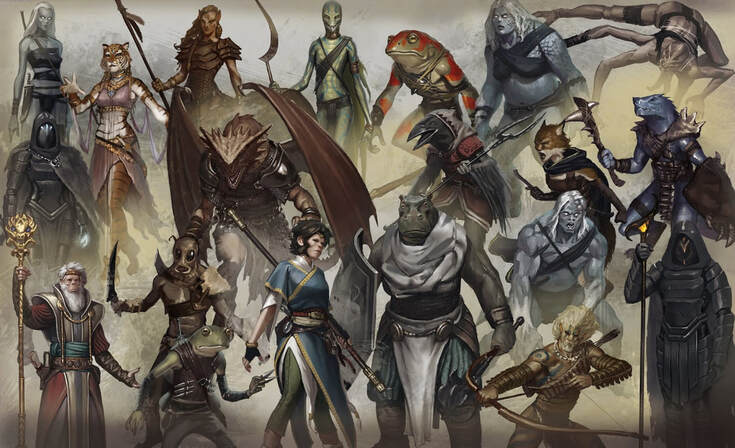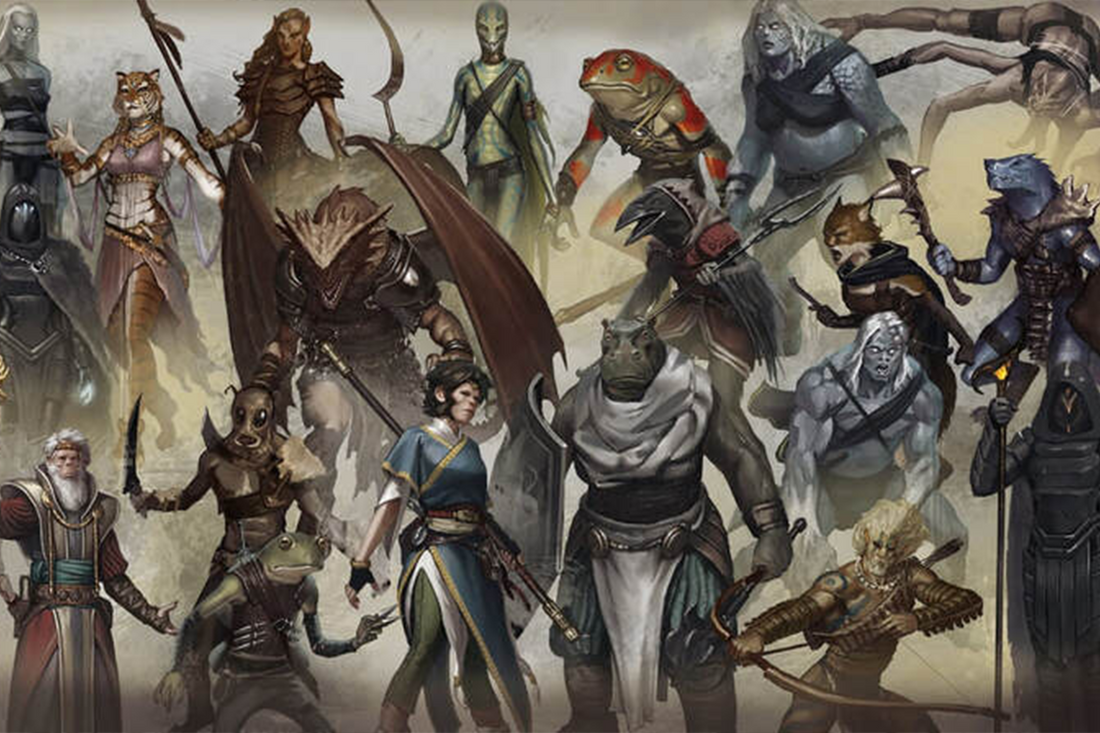Fantasy and Sci-fi fiction is full to the hilt of an incredible array of fictional races and species. Elves, Dwarves, Orcs, Merfolk, Clingons, Ewoks and all the others we can think of. Today, I want to strengthen your worldbuilding forearms with a few bits of advice on how to handle creating new species from scratch and expanding on their origins.

Creating an entirely new race is a fantastic way to project a societal moral into your story. The Vulcans in Star Trek, for example, had no capacity for emotions and thus were ever logical – even to their detriment. How would such a personality conflict with the emotive human race?
The possibilities for these kinds of questions are endless, but whatever you decide to use your species for in your story, you are going to need to know how they got there in the first place.
The possibilities for these kinds of questions are endless, but whatever you decide to use your species for in your story, you are going to need to know how they got there in the first place.
GODS VS EVOLUTION
Yep, it’s that early 2000’s Youtube comments sections favourite. Did your race crawl out from the primordial ooze naturally over millions of years or did an almighty deity (or many deities) wave their hand and all that would appear appeared?
In 1835, a 22-year old naturalist on board the HMS Beagle named Charles Darwin landed on the Galapagos Islands to study the natural wildlife. Darwin made numerous discoveries and biological notes during that expedition, but his most well remembered of all was ‘the beaks of the finches’. He noticed that all the species of finch that lived on all 16 of the Galapagos Islands had slightly different shaped beaks, all seeming perfectly suited to catching a particular type of prey. Some beaks were large and strong to crack nutshells, some long and thin to eat insects behind tree bark. This discovery was more than a little controversial at the time, but I digress.
Darwin discovered that the variety of life just with those 16 islands was staggering enough to alter the physical appearance and functionality of the finches.
Darwin discovered that the variety of life just with those 16 islands was staggering enough to alter the physical appearance and functionality of the finches.

Darwins Voyage through the Galapagos
This is a fundamental part of creating a believable fictional race (that evolved) – evolution is all about how organisms interact with their environment. If it’s an icy desolate planet like Hoth, your alien race had better have a built-in snow suit. If they live in burrows below the sands of a baking hot desert, how do they get water? How does that lifestyle affect their biology?

In Mythology, humanity is usually a gift, a curse or an accidental byproduct from the interactions of the Gods. The mighty pantheon of all-powerful immortals who ultimately decide everything.
Weather they battled their way to victory against their creators, like the Greek Gods or were formed ultimately from the armpit of a frost giant, like the Norse – your Gods will need an origin story too, and then a reason for creating your species at all. The Amazons were created by Zeus to protect humanity from Aries (Wonder Woman was a good movie), perhaps your races could be something similar – or the total opposite; Aries created them to wipe out humanity!
How did your race find out about the Gods? Was the first of them created and that knowledge was passed down orally? Or are the Gods contactable regularly in this world, perhaps by shrine or through mystics?
Weather they battled their way to victory against their creators, like the Greek Gods or were formed ultimately from the armpit of a frost giant, like the Norse – your Gods will need an origin story too, and then a reason for creating your species at all. The Amazons were created by Zeus to protect humanity from Aries (Wonder Woman was a good movie), perhaps your races could be something similar – or the total opposite; Aries created them to wipe out humanity!
How did your race find out about the Gods? Was the first of them created and that knowledge was passed down orally? Or are the Gods contactable regularly in this world, perhaps by shrine or through mystics?
A society that evolved from hunter gatherers will likely be tribal and agricultural; they’ve lived off the land for many thousands of years but are also weary of other tribes and are accustom to the regular conflict. But a society that was created by Gods, and knows this to be true, will most likely be a very pious society – thanking their Gods regularly with tributes or even sacrifices.

Hunter-gatherers
The origins of your fictional species will determine their biological structure, their beliefs, behaviours and society. It is essential to understand this aspect of your race and build upon it in such a way that more of your story elements can be introduced so that it reads like mythology.

